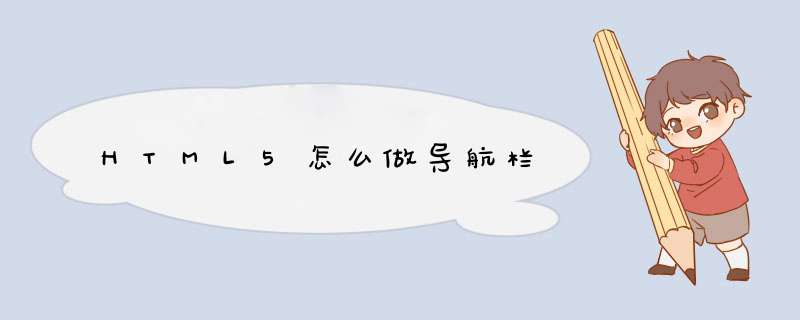
<!doctype html>
<html>
<head>
<title>HTML5+CSS3+JavaScript</title>
<meta http-equiv="Content-Type" content="text/htmlcharset=gb2312" />
<meta http-equiv="Content-Type" content="text/htmlcharset=gbk" />
<meta http-equiv="Content-Type" content="text/htmlcharset=utf-8" />
<meta http-equiv="Content-Language" content="zh-cn" />
<meta name="Generator" content="EditPlus">
<meta name="Author" content="">
<meta name="Keywords" content="">
<style type="text/css">
body {
behavior: url(ie-css3.htc)
}
* {margin:0 autopadding:0}
body {font-size:13pxfont-family:Arial}
ul li {list-style:none}
#menu {
width:982px
height:35px
margin-top:20pxdisplay:block
background: #e3e3e3
background: -moz-linear-gradient(top, #ccc, #999)
background: -webkit-gradient(linear, left top, left bottom, from(#ccc), to(#999))
-moz-box-shadow: 1px 1px 3px #333
-webkit-box-shadow: 1px 1px 3px #333
box-shadow: 1px 1px 3px #333
-webkit-border-top-left-radius:4px
-webkit-border-top-right-radius:4px
-moz-border-radius-topleft:4px
-moz-border-radius-topright:4px
-webkit-border-bottom-left-radius:4px
-webkit-border-bottom-right-radius:4px
-moz-border-radius-bottomleft:4px
-moz-border-radius-bottomright:4px
-o-border-radius:4px
-khtml-border-radius:4px
text-shadow: 0 1px 0 white
}
#menu ul {
margin-left:0
}
#menu ul li {
display:inline
}
#menu ul li a:link, a:visited {
text-align:centerfloat:leftwidth:6.8emtext-decoration:nonepadding:7.5px 0.75emfont-size:16pxfont-weight:boldmargin-top:0pxborder-right:1px solid #ccccolor: #454545
}
#menu ul li a:hover {
text-decoration:none
background:-webkit-gradient(linear, left top, left bottom, from(#333), to(#ccc))
background: -moz-linear-gradient(top, #333, #ccc)
-webkit-background-size:0 35px
color: #ddd
text-shadow: 0 1px 0 black
}
.text {
border:1px solid graywidth:150pxheight:17pxposition:relativetop:8pxleft:13pxfont-family:Arial
-webkit-border-top-left-radius:90px
-webkit-border-top-right-radius:90px
-moz-border-radius-topleft:90px
-moz-border-radius-topright:90px
-webkit-border-bottom-left-radius:90px
-webkit-border-bottom-right-radius:90px
-moz-border-radius-bottomleft:90px
-moz-border-radius-bottomright:90px
-o-border-radius:90px
-khtml-border-radius:90px
}
</style>
<script language="JavaScript" type="text/javascript">
(function()
{
if(!0)
return
var e = "abbr,article,aside,audio,bb,canvas,datagrid,datalist,details,dialog, eventsource,figure,footer,hgroup,header,mark,menu,meter,nav,output,progress,section,time,video".split(','),i=0,length=e.length
while(i<length)
{
document.createElement_x(e[i++])
}
})()
</script>
</head>
<body>
<menu id="menu"><form action="index.php" method="get">
<ul>
<li><a href="#" title="HomePage">HomePage</a></li>
<li><a href="#" title="Introuduce">Introuduce</a></li>
<li><a href="#" title="Products">Products</a></li>
<li><a href="#" title="My album">My album</a></li>
<li><a href="#" title="Shopping">Shopping</a></li>
<li><a href="#" title="Contact our">Contact our</a></li>
</ul>
<input type="search" class="text" value="search..." /></form>
</menu>
<body>
响应式布局最简单的就是用css3来实现。我举一个最简单的例子。下面是html代码。
<!DOCTYPE html>
<html lang="en">
<head>
<meta charset="UTF-8">
<meta name ="viewport" content="width = device-width,initial-scale=1">
<title>index01</title>
<link href="style01.css" type="text/css" rel="stylesheet">
</head>
<body>
<div class="heading">第一</div>
<div class="container">
<div class="left">第二</div>
<div class="main">第三</div>
<div class="right">第四</div>
</div>
<div class="footing">第五</div>
</body>
</html>
下面是css3代码
*{
margin:0px
padding: 0px
}
.heading,
.container,
.footing{
margin: 10px auto
}
.heading{
height: 100px
background-color: red
}
.left,
.right,
.main{
height: 300px
background-color: yellow
}
.footing{
height: 100px
background-color: gray
}
<!--media="only screen and (max-width:640px)" 这句话的意思是:只要当渲染屏幕的宽度不大于640px的时候才会使用这个样式表-->
@media screen and (min-width: 960px){
.heading,
.container,
.footing{
width:960px
}
.left,
.main,
.right{
float: left
height: 500px
}
.left,
.right{
width:200px
}
.main{
margin: 0px 5px
width:550px
}
.container{
height: 500px
}
}
@media screen and (min-width: 600px) and (max-width: 960px){
.heading,
.container,
.footing{
width: 600px
}
.left,
.main{
float: left
height:400px
}
.right{
display: none
}
.left{
width: 160px
}
.main{
width: 435px
margin-left: 5px
}
.container{
height: 400px
}
}
@media screen and (max-width: 600px){
.heading,
.container,
.footing{
width: 400px
}
.left,
.right{
width: 400px
height: 100px
}
.main{
margin-top: 10px
width:400px
height:200px
}
.right{
margin-top: 10px
}
.container{
height: 420px
}
}
这样就可以实现简单的响应式布局!如果你想要了解的话,可以到华清远见学习一下。我就是在那里学习的。
欢迎分享,转载请注明来源:内存溢出

 微信扫一扫
微信扫一扫
 支付宝扫一扫
支付宝扫一扫
评论列表(0条)